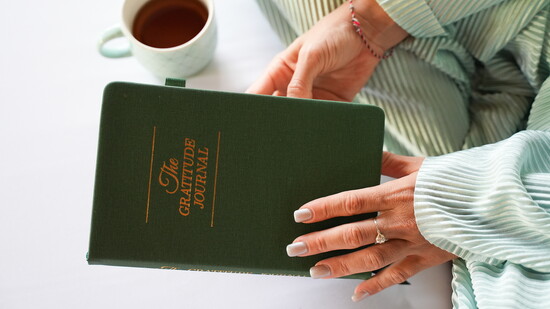We talk a lot about gratitude. From keeping journals and writing thank-you notes to remembering to count our blessings. And it’s true: study after study has shown that practicing gratitude improves happiness, strengthens resilience, and even has measurable effects on the brain.
But here’s the thing: most of us direct gratitude outward. We thank others, the universe, even our morning cup of coffee. Rarely do we stop and say, “Hey, thank you, me. You got through today.”
That’s where the real magic happens.
Why Self-Gratitude Isn’t Selfish
For many, the idea of thanking ourselves feels uncomfortable. We confuse self-gratitude with ego. But research suggests it’s the opposite. Gratitude builds humility, compassion, and resilience. A 2019 study in Frontiers in Psychology found that people who practiced self-directed gratitude reported lower levels of stress and depression. And neuroscientists at Indiana University discovered that gratitude exercises light up the brain’s dopamine and serotonin pathways, helping us feel calmer and more balanced…even months later.
Leading gratitude researchers reminds us that gratitude is not just a social emotion. It’s also an internal resource, one that helps us see ourselves through a more forgiving, appreciative lens. In other words, it’s fuel for self-worth. And who doesn’t want a little rocket juice to get the gratitude party started?
Bookending Your Day with Gratitude
Gratitude isn’t just a “nice-to-have”, it’s a reset button for your nervous system. How you start and end your day makes a difference. So much so, it’s a big part of my signature program, HUG it Out® program. The G in H-U-G is there for a reason. While every day should begin with gratitude, it should also end with it.
Research from happiness expert Sean Achor, author of The Happiness Advantage, found that people who wrote down three things they were grateful for each morning experienced higher levels of optimism and productivity, even weeks later. Starting your day with self-gratitude primes your brain to scan for the positive, instead of bracing for stress. It’s like giving your mind a compass that points toward possibility.
And just as the morning sets the tone, the last five minutes of your day can anchor you in calm.
Why It Matters at the End of the Day
While every day should begin with gratitude, it should also end with it. Especially as you settle down to sleep. The last five minutes of your day before you lay your head on your pillow are some of the most powerful. That’s when your subconscious begins its work. By ending the day with gratitude, for yourself, your effort, your perseverance, you’re literally rewiring your brain toward safety, resilience, and calm while you sleep.
Think of it as a gift to your future self.
10 Ways to Practice Self-Gratitude
Here are a few simple, science-backed ways to explore gratitude for yourself:
- Write yourself a thank-you note. Instead of sending it, keep it as a reminder of your resilience.
- Keep a “done list.” At day’s end, jot down three things you handled well…big or small.
- Practice in the mirror. Look yourself in the eye and say: “Thank you for showing up today.”
- Start a gratitude jar. Each week, write down one moment you’re proud of and place it in the jar. Revisit them monthly or at the end of the year.
- Recall and savor. Before bed, reflect on one thing you did well and let yourself feel proud.
- Celebrate micro-wins. Even simple things like hydrating, setting boundaries, and resting deserve acknowledgment.
- Reframe mistakes. Thank yourself for the lesson or the courage it took to try, rather than focusing on the outcome.
- Use prompts. Ask yourself: “What did I do today that deserves thanks?”
- Thank your body. After exercise or a long day, place your hand on your heart and say, “Thank you for carrying me.”
- Gratitude meditation. Spend five quiet minutes repeating: “I’m grateful for my persistence,” or “I thank myself for caring.”
The Takeaway
Self-gratitude doesn’t mean ignoring others or becoming self-absorbed. It means recognizing your own humanity and giving yourself credit for navigating the ups, downs, and in-betweens of life.
So tonight, before you drift off to sleep, take a moment to thank yourself. And come morning, rinse and repeat to amplify that self-appreciation. Because while gratitude fuels connection with others, it also strengthens the most important relationship you’ll ever have: the one with yourself.
About Hilary Russo
Hilary Russo is a Bergen County Based trauma-informed holistic practitioner, health coach, journalist, international speaker, and author. She is one of only 50 Certified Havening Techniques® Trainers worldwide and a certified practitioner of this neuroscience-based method. With a background in media and the military, Hilary brings first-hand insight to her work with clients facing secondary trauma, stress, and burnout. Her globally top-rated podcast, HIListically Speaking® (top 1.5%), features inspiring conversations with leading voices in holistic health, wellness, and neuroscience. Connect with Hilary at www.hilaryrusso.com or on social media @hilaryrusso.
Spend five quiet minutes repeating: “I’m grateful for my persistence,” or “I thank myself for caring.”
